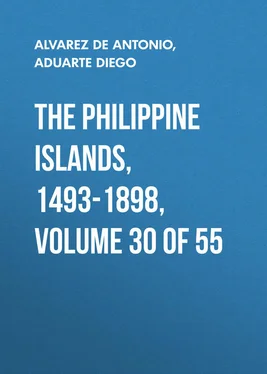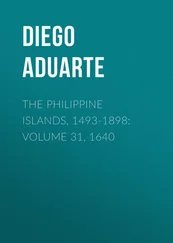“An indiscreet or ill-directed zeal distracted from labors and persistent effort those colonists, who themselves were inclined to inactivity. Their exceedingly lucrative commerce and intercourse with America accustomed them to regard as intolerable and even disgraceful the most honorable occupations. If through any misfortune the rich Acapulco galleon could not be despatched, or was wrecked, the greater part of the inhabitants lapsed into fearful misery. Many became beggars, thieves, or assassins; it was customary for them to enlist as soldiers; and the courts were unable to check or correct the many crimes committed.” (Malo de Luque, Establecimientos ultramarinos, v, pp. 211–212.) Cf. this with Raynal’s Settlements and Trade in Indies, iii, p. 78, from which Malo de Luque has again borrowed without giving Raynal credit (see note 7, ante).
Silkworms and the cultivation of the mulberry tree, for both of which the country is naturally adapted, were introduced into Mexico by Cortés, and for a time the production and manufacture of silk there promised to become a source of wealth to the country; but it was practically ruined by the restrictive and unfriendly policy of the Spanish government and the competition of the Chinese silks sent to Nueva España from Manila. Mexico has several native species of silkworms, and trees on which they feed – not only of mulberry, but of other genera; and their product was used by the natives before the conquest, especially in Mizteca in Oajaca. For accounts of this product and industry, see Acosta’s Hist. Indies (Hakluyt Society’s publications, London, 1880), i, p. 269; Humboldt’s New Spain (Black’s translation), iii, pp. 57–60, 465; and Bancroft’s Hist. Mexico, ii, p. 292; v, pp. 612, 613; vi, pp. 524, 576.
On fol. 24 verso of the Extracto, the surname Barahona is added to this man’s name as here given.
Under the rule of Felipe III and Felipe IV, the economic and financial affairs of Spain fell into a ruinous condition. The indolence and incompetency of those monarchs, the influence exercised over them by unscrupulous favorites, the rapid increase of absolutism and bureaucracy, the undue privileges accorded to the nobility and clergy, costly and useless wars, the extravagance and corruption which prevailed in the court and in the administration of the entire kingdom and the expulsion of the Moriscos – all these causes quickly brought on an enormous national debt, the impoverishment of the common people, depopulation of large districts, almost the ruin of manufacture and the like industries, the oppression of the poor, the trampling down of the national liberties, the decline of Spain’s naval and military power, and many other evils. The treasures of the Indias did not suffice to maintain the nation, and even caused some of its woes; and the reckless mismanagement of its revenues caused enormous deficits, which its rulers attempted to meet by imposing more and heavier taxes, duties, and contributions upon a people already staggering under their grievous burdens. The impositions named in the text are but a few of those levied at that time; and the colonies were compelled to bear their share of the burden carried by the mother-country. See the excellent survey of this period in Spanish history, and of conditions political, administrative, social, and economic, with bibliography of the subject, in Lavisse and Rambaud’s Histoire générale (Paris, 1893–1901), v, pp. 649–682.












